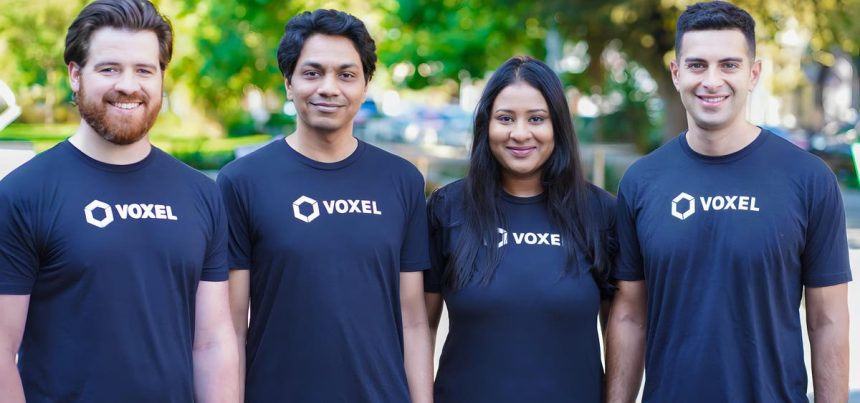San Francisco-based start-up Voxel promises to hugely reduce the possibility of you suffering an accident at work. The company, which is today announcing a $12 million strategic fundraising round, uses artificial intelligence (AI) technology to try to prevent accidents before they happen – deployments of its tools at sites across the US have seen accident numbers come down by as much as 80%, claims CEO and co-founder Alex Senemar.
Forbes first featured Voxel in May of last year, breaking the news that the company had pulled off a $15 million Series A round. A little over a year later, it has signed an investment deal with the global manufacturing business Rite-Hite, which is leading the $12 million round announced today. Existing investors Eclipse Ventures, Mtech and the World Innovation Lab are also participating, with the total amount of money raised by Voxel since its launch in 2020 now at $30 million.
Senemar believes Voxel’s success highlights the potentially positive impacts of AI in a world where there is increasing nervousness about advances in the technology. “We hear so much about the ‘big brother’ society and the fears around AI, but this is an example of how technology can be used for good,” he says.
Voxel’s technology piggy-backs on the security cameras that manufacturers, industrial businesses and other companies with physical facilities now use routinely to monitor their sites. The company is able to insert its technology into such cameras, which can then identify hazards, risky behaviours and operational inefficiencies – anything from a materials spill or near-miss vehicle collision to poor practices on lifting heavy goods. Having identified a problem, Voxel’s system then automatically warns key personnel on site so they can take immediate action.
The result is a significant fall in the number of accidents on such sites, reducing costs for employers and – more importantly – meaning that fewer employees are hurt, injured, or even killed in the workplace. The business has signed up Fortune 500 companies including Michael’s, Dollar Tree, Clorox, PPG Industries and Office Depot as clients; some users of the system are seeing accident rates fall by four-fifths, Senemar adds.
“It’s a product that has obvious worth and value,” he says. “It’s not just that it saves money, though that is important because accidents and inefficient working do carry significant costs; rather, there’s a real social impact.” As for some of the negative noise around AI, Senemar points out that Voxel’s AI ethics policy means no individuals can be identified using its platform. He believes its an example of how AI can be used for good.
It’s a proposition that seems to be resonating with stakeholders. Voxel’s headcount has expanded more than five-fold since its Series A round last year, with new clients continuing to come on board. The business has also picked up a string of awards for its technology.
The next phase of evolution for the company will see it develop its technology further and drive for greater commercial impact – in new geographies and in new markets. In this context, the alliance with Rite-Hite, which has relationships worldwide, promises to boost the business. “Rite-Hite is on a mission to improve industrial safety, security and productivity worldwide through quality and innovation.,” says Micaela Bomhack, CEO at Rite-Hite. “We’ve seen first-hand the impact Voxel’s technology has had on workers and workplaces.”
There is certainly plenty of potential market to go at. In the US alone, more than 340 million workers report some sort of injury in the workplace each year. Reducing that figure would have a massive impact, both commercially and personally for those affected. And Senemar believes the company can continue to broaden its offer – ports and airports have begun to take an interest in Voxel’s technology, he points out.
Read the full article here





